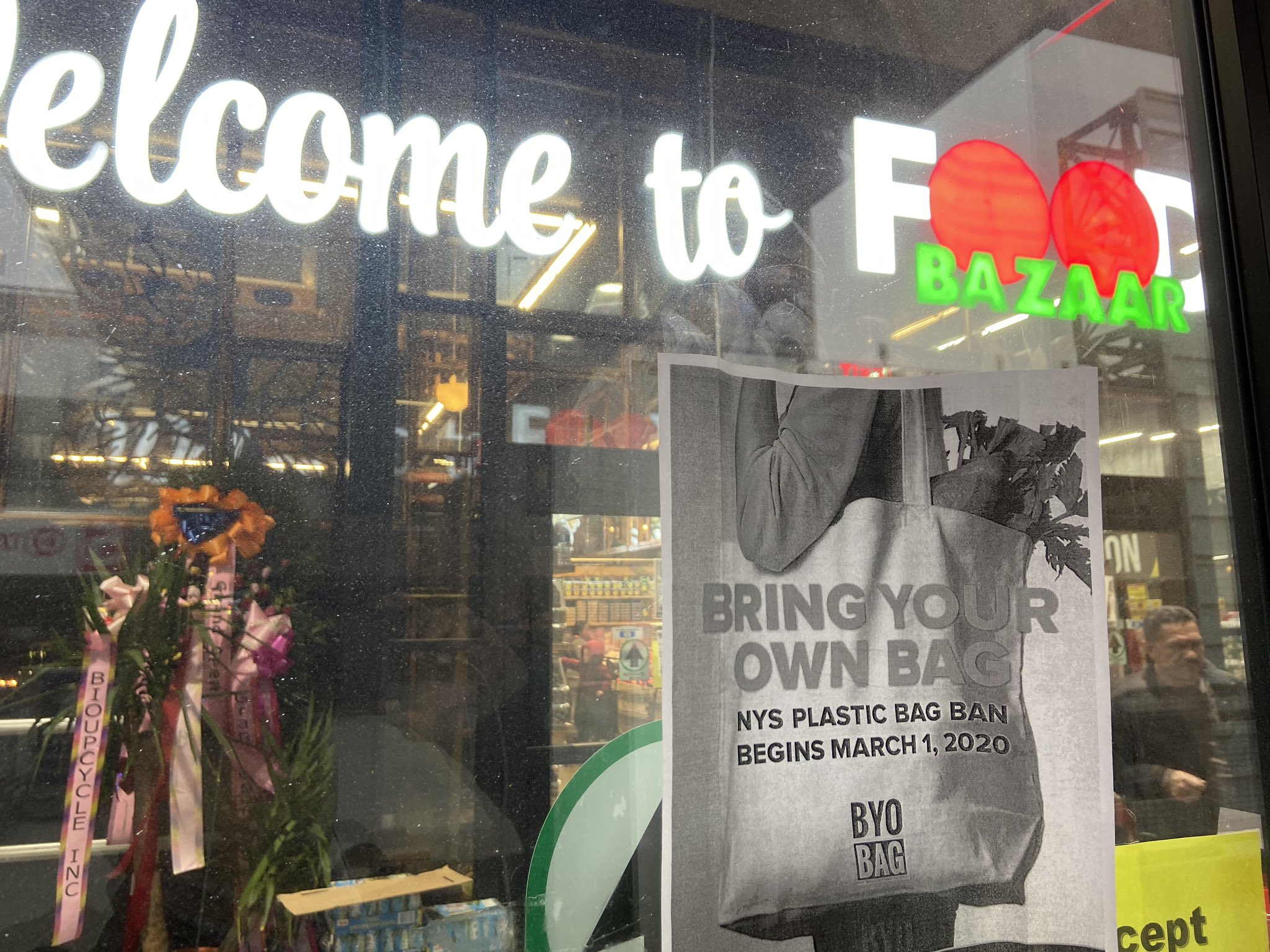A couple weeks ahead of the statewide ban on plastic bags, Nancy Testa wanted to test the waters. For Valentine’s Day, with a line stretching outside the door, Testa decided to see how going bag-less would work at her bakery.
It did not go well.
“People were very upset and furious,” said Testa, owner of Capri Bakery on E. 149th Street in Mott Haven. “They thought that it was the bakery, and many of them were not aware that this is happening and that this is a new regulation coming from [the state].”
Testa is not alone. The bakery owner, who opened the store four years ago, says other businesses on the block are also unsure about what, and who, the ban applies to.
Beginning March 1, New York will join California and Oregon, plus many other cities and counties across the country, in banning single-use plastic bags. The ban was signed into law 10 months ago by Gov. Andrew Cuomo.
Testa says her business goes through about 3,000 plastic bags in a week, and worries that the new law puts small businesses at a disadvantage.
“We don’t have much time to be able to find a vendor who will give me what I need at a competitive price. It’s almost like I’m being rushed,” said Testa. She adds that she is still in the process of getting price quotes from vendors for paper bags but finds that they’re more expensive per unit than plastic.
“They’re telling me they’re trying to give me the same price but I’m getting less quantity,” said Testa.
New York City residents use more than 10 billion single-use carryout bags every year, and disposing of them costs over $12 million annually, according to the city Department of Sanitation. Some estimates from environmental advocates say plastic bags can take hundreds of years to decompose, and sanitation officials say the bags often clog recycling machinery.

“This type of waste creates big problems, even though they are a low percentage of waste by weight,” said a Sanitation department spokesperson Dina Montes. The department estimates that it has distributed approximately 60,000 reusable bags in The Bronx in recent years, with other giveaway events ongoing throughout the city.
Penalties under the new law include a warning for the first violation, then a $250 fine for the business on the second occurrence, and a $500 fine for each subsequent incident. Paper bags being used as an alternative will be taxed at 5 cents each, though SNAP and WIC recipients are exempt from the fee.
Not all plastic bags are banned, however. Bags used to contain uncooked meat, fish, or poultry, or to carry loose bulk items like candy or produce, are exempt. So are bags provided by restaurants for carryout or delivery, trash bags and garment bags, plastic bags sold in bulk, or those for carrying prescription drugs or newspaper deliveries.
Lisa Sorin, president of the Bronx Chamber of Commerce, says she’s personally been using reusable shopping bags for some time, but is concerned about how small businesses will absorb the costs.
“At the end of the day for the smaller business – and I hate to say it – it is much more difficult,” said Sorin. “They don’t have a corporation behind them to assist them in the costs to either figure out how to make it easier for their customers, or paying for the paper bags that they have to charge the customer for.”
Michael Brady, CEO of the Third Avenue Business Improvement District, is one of the area business leaders who appreciate the environmental benefits. Still, he’d like to see a three- to six-month grace period while businesses figure out how best to adjust. He’s also concerned that businesses will have to come up with a system to track the 5-cent tax on paper bags, which has to be paid quarterly.
“I think any new regulation always has the potential to threaten more small businesses, especially,” said Brady. “I think that the plastic bag ban… really needs to be thought through a little bit more on the ramifications on small mom and pop businesses, particularly businesses that don’t have the internal structures or resources to scale.”
The BID is hoping to get out one step ahead of the expected confusion by organizing an information session on Wednesday, Feb. 26 at 5 p.m. The meeting will be held at the BID office, located at 2825 Third Ave., 3rd Floor, at the corner of East 148th Street. Representatives from the Department of Sanitation are expected to be in attendance.
As for Testa, she feels that increased media coverage would inform consumers about the coming switch, and that informational meetings for merchants would help them adjust their business practices, too.
“I think that the more that we as a collective educate and get the information out, clients will be more receptive to it,” said Testa.

